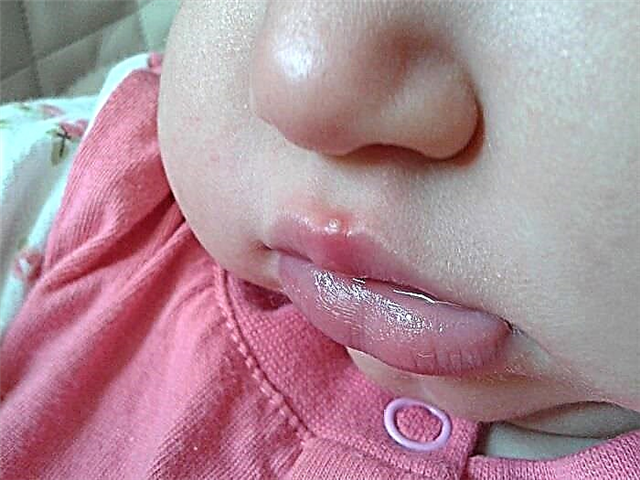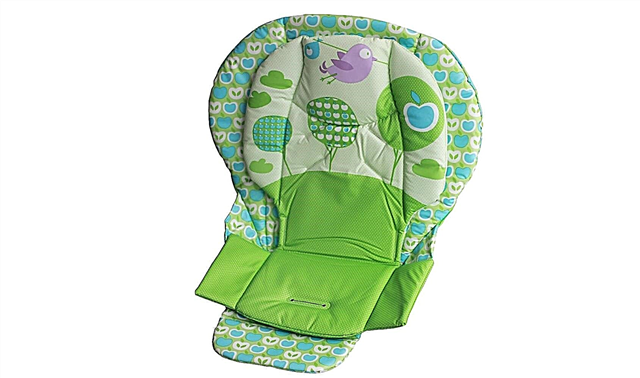After the birth of the baby, the living conditions of the baby change dramatically. The kid has to adapt to an unusual environment, learn to breathe and eat on his own. As a result, the body goes through certain processes.

Newborn child
Process features
In medical practice, the set of clinical reactions of the child's body, caused by the transition from intrauterine life to extrauterine life, is a borderline state of the newborn. Such processes occur in infants during childbirth and in the near future after them. They pass quickly, so they are not considered a deviation from the norm in a newborn. Borderline conditions of newborns are the physical adaptation of the body to unusual conditions.

Most common borderline states
From the respiratory system
During the birth of the baby, it is instantly immobilized for a few seconds, then a deep breath appears. Within the next 5-6 minutes. the child is active. The respiratory rate of a newborn in the first week varies from 30 to 60 breaths per minute.
From the kidneys
The borderline states of infants, which characterize the adaptation of the organs of the urinary system to unusual conditions, include transient oliguria, albuminuria and uric acid infarction. With transient oliguria, characteristic of all healthy newborns in the first 3 days of life, there is a decrease in urine output. The reasons for this phenomenon are considered to be a decrease in fluid intake into the body, as well as features of hemodynamics.
Proteinuria is caused by an increase in the permeability of the filtration barrier, capillaries and kidney tubules, enhanced hemolysis of erythrocytes. The pathogenesis of uric acid infarction is associated with the deposition of uric acid salts in the lumen of the renal tubules, which leads to staining urine in a reddish color and the appearance of brown-red stains on the diapers. In the study of the general analysis of urine, granular and hyaline casts, epithelium, leukocytes are found. In case of uric acid infarction, it is necessary to monitor adequate fluid intake and urine output in newborns. If this borderline state in a newborn does not disappear on its own, from about the 10th day of life, changes in urine are regarded as pathological, requiring the consultation of a pediatric urologist.
Important! The unfavorable course of these borderline states of newborns can serve as the basis for the subsequent development of dysmetabolic nephropathy, urinary tract infections, urolithiasis and problems with the gastrointestinal tract.
From the side of metabolism
The environment in which a newly born baby falls is about 13 ° C lower than in the womb. Therefore, within an hour, the body temperature of a newborn can drop (hypothermia) to 35.5-36 ° C, especially on the limbs. However, after 12 hours, the temperature returns to normal.
The immature work of the thermoregulation center can cause the development of hyperthermia, which increases by 3-5 days. Thermometer marks sometimes reach 38-38.5 ° C, with insufficient fluid intake in the body, dehydration occurs, an increased concentration of sodium and protein in the blood.
Treatment consists in the introduction of additional liquid in the form of a drink; in severe cases, intra-drop injections are given. It is also important to normalize the temperature regime in the room where the baby lives, and to prevent overheating due to excessive wrapping. With proper care, hyperthermia occurs no more often than in 0.5% of cases.
Fasting in the first days of life, changes in gas exchange processes, changes in the hormonal background - all this affects metabolism.

Checking the physiological state of the child
Others
The borderline conditions of a newborn child include physiological weight loss in the first 2-3 days, skin erythema. They are normal, mainly due to the fact that lactation is just being established. In addition, meconium comes out on the first day, urine is excreted.
By the end of the first week, the original weight is restored, it becomes even more. Early attachments to the breast, as well as on-demand feeds, are key to good weight gain. If the weight loss at discharge was more than 10%, they speak of malnutrition of the newborn. In this case, the main recommendation is to consult a neonatologist.
In addition to the above-mentioned borderline states, some newborns have transient immunodeficiency, as a result of which the protective forces of the crumbs are weakened.
Note! The baby becomes vulnerable to infection in the first 3-4 days of life. For this reason, sterility is so important in maternity hospitals.
Caring for an infant during the adaptation period
In neonatal pediatric departments, paramedics provide invaluable assistance in caring for newborns, who provide a short training course on infant care for young mothers. Nursing work includes careful observation of the newborn in the first days of his life, various medical manipulations, prevention of nosocomial infections, as well as organizing the regimen and helping the mother to establish breastfeeding, which is so necessary for the healthy development of the baby.
For early detection of pathologies and their successful treatment in maternity hospitals, neonatal screening is carried out everywhere. With the help of special tactics such diseases as phenylketonuria, galactosemia, cystic fibrosis, cyanoticity, hypothyroidism, adrenogenital syndrome are detected.
All transitional states in infants observed in the first weeks of life are considered an absolute norm and do not require any treatment. In the process of adaptation of a newborn to extrauterine life, they pass independently.
Note! If a baby is born unhealthy or prematurely, as a result of a complicated pregnancy, borderline conditions can develop into a pathological process that requires qualified medical care.

Help from medical staff in the first days after birth
Childbirth is unconditional stress for a baby who has just been born. The baby undergoes great physical exertion during contractions, after birth, the work of his entire body is rapidly rebuilt. As a result, borderline states develop in the newborn.



